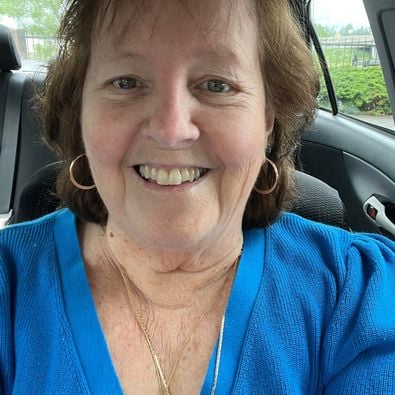
Catherine Mendenhall-Baugh considers that fulfilling our purpose in life can lead us to sainthood.
God’s definition of what matters is pretty straightforward. He measures our lives by how we love. (Francis Chan, Crazy Love: Overwhelmed by a Relentless God)
The most important days of your life is the day you are born and the day you die. (Mark Twain)
I remember reading The Purpose Driven Life by Pastor Rick Warren. I like it when any author takes on tough subjects and writes about them. Warren did exactly that. Warren uses the Bible throughout his bestselling book to come up with five basic ideas as to why we are here:
- We were planned for God’s pleasure. (First purpose: to offer worship.)
- We were formed for God’s family. (Second purpose: to enjoy fellowship
- We were created to become Christ like. (Third purpose: to learn to be a disciple)
- We were shaped for serving God. (Fourth purpose: to perform ministry)
- We were made for a mission. (Fifth purpose: to live evangelism).
Has Warren truly established our purpose for being here in these five statements?
A friend reminded me of the question from the Baltimore Catechism, “What is our purpose?” The Catechism taught, “We were born to know, love and serve God in this world and in heaven.”
Is this nugget of wisdom still the best answer for addressing our purpose for being here? When I looked up the Baltimore Catechism definition, it struck me that Pastor Warren’s five concepts are saying the same thing, just with a little more detail.
It seems that many people have an opinion as to why they are here. Ideas and opinions about what our purpose is vary from each individual and their backgrounds. I’ve read a few of these. “I was meant to be here to raise my family.” “Or, I was meant to be a strong athlete and show the world what I can do.” “Recently, I have even told people, I feel now I was really meant to be a writer.”
I want to preface this, by saying, what I write here includes my own thoughts on this subject.
I’m going to go out on a limb then, and say we all have the same purpose! What? How can this be? With billions of people living in the world, you are suggesting that in spite of varied backgrounds, ages, religions, ideologies, cultures, and histories, we all have the same purpose for being here?
Let me start by introducing a few ideas and then I will come back to our purpose. My #1 idea: God is Love! Let me rephrase that. God is Perfect Love! This is my first observation that leads to the opinion that I believe is at the core of the answer to this question; we only have a few opportunities to know perfect love. We spend our lives seeking to be loved. But, I believe, our exposure to perfect love is brief. I think we only get to experience this knowledge of perfect love for very few selected moments in our lives. So when does it happen? Certainly one time I think that we have a glimpse of God’s perfect love is when we hold a newborn child minutes after they are born. I’m speaking from my own experience here when I say I can remember the moment I gave birth to my daughter; I felt an overpowering sense of love when they placed her in my arms. No moment in my life has ever come close then or since.
One other time we are exposed to this is being with someone at the moment of death. My sister Mary says being with my mother at the moment she took her last breath was an experience similar to what she felt when she gave birth to her children. Another time is when we truly give of ourselves to another person and we can sense that our love makes a difference to that person. I think all of these times allow us the opportunity to know perfect love, so this leads me to my theory. What we are learning at these moments is about God’s capacity for love. We are made in His image. I, therefore, am drawing the conclusion that our purpose is to give love and receive love just like God has done for us.
“Teacher, which commandment in the law is the greatest?”He said to him, “You shall love the Lord, your God, with all your heart, with all your soul, and with all your mind.This is the greatest and the first commandment. The second is like it: You shall love your neighbor as yourself. The whole law and the prophets depend on these two commandments.” (Matthew 22:36-40)

I learned that one person hurting another really is like a hand curling into a fist to smash the foot. And that all that really matters is family and other people. And that the purpose of life is to find the Light of God, but not the light from some old guy with a beard sitting up there judging us. The light is the love we give each other on our way back home. And that God wouldn’t mind if we spent a little less time telling him how great he is, and a little more time loving each other, and not just the people we’re supposed to love, but everyone! (Paul H. Magid, Lifting the Wheel of Karma)
You might ask, can it really be this uncomplicated? Frankly, I think it’s very complicated. Take the love of a parent for a child. I can’t help but compare that love to God’s love for all of His children. I know that for my children, I can’t think of anything they would ever do, that I wouldn’t forgive. Certainly, God is capable of so much more love than us, yet look what we are willing to do for our children out of love.
Let us stop and think how many people every day that we come in contact with. Is our purpose than to show love to each person. How can we do this? Our contact with most people is brief. I remember when I saw a homeless man every day driving to work. He commented to me that he is so appreciative of my giving him food and coffee and even money on occasion, but what he appreciates the most is that I talk to him. I thought about this statement. I think he’s trying to tell me that I am validating that he is a person, a child of God worthy of love.
“To love another person is to see the face of God.” (Victor Hugo, Les Misérables)
If we are capable of loving others with our heart and soul, then we are capable of forgiveness and kindness and compassion. All of the five items mentioned by Pastor Warren are possible when done out of love for each other and subsequently love of God.

Every person is capable of loving in spite of their circumstances. So how do we accomplish this? I think the most important way is to remember every day when we wake up that our mission should be: “Today I will make a special point to reach out to others.”
Your response to this: “It’s impossible to love everyone that we come in contact with every day. What about the people that are angry or hateful? How do we love them?”
I think God’s answer is, “Truly, they need it most of all!” I think the idea here is to try at every given moment, whether it is a waitress, a cashier, a teacher, a nurse, a doctor, a cab driver, to reach inside yourself and extend kindness to that person. It can be done with a word of kindness or a gesture.
I think God is asking that we all lead others with our heart. This is the path to sainthood.
I do not mean to oversimplify this idea of our purpose. I also believe that Pastor Warren sold millions of books because he did a great job discussing this. I only mean, we need to think about our purpose and not be afraid to act upon it.
Between the natural way and the path of grace there is a deep abyss. It is in that gap that we live our lives as a giant struggle between good and evil, Satan & God, despair and love. Whenever despair wins, it is the natural way. Whenever love wins, it is a moment of grace. When love is victorious and defeats despair completely, you’ve reached the path of grace. (Haim Shapira Things that Matter)

Copyright 2022 Catherine Mendenhall-Baugh
Images: Canva
About the Author

Catherine Mendenhall-Baugh
Catherine Mendenhall-Baugh (Cathy) completed her education in Special Education and English and now works as an Agent in the Insurance Industry. A mother and Grandmother, Cathy grew up in a large Catholic family and has spent the last 30 years as a caregiver for her husband, Jack. She is a cancer survivor, which inspired her to begin writing.


.png?width=1806&height=731&name=CatholicMom_hcfm_logo1_pos_871c_2728c%20(002).png)
Comments